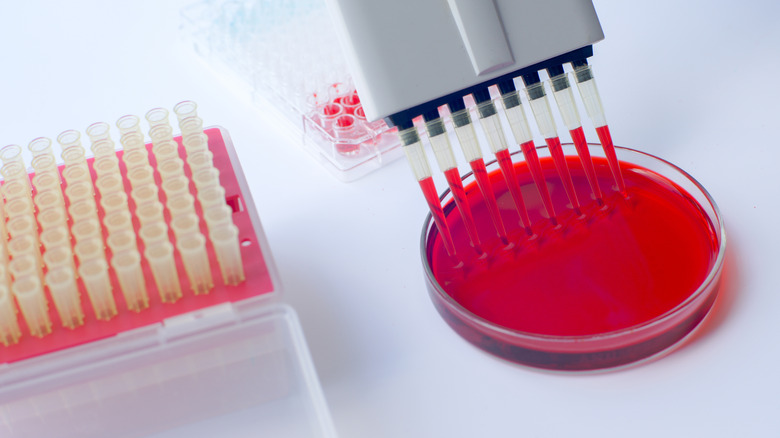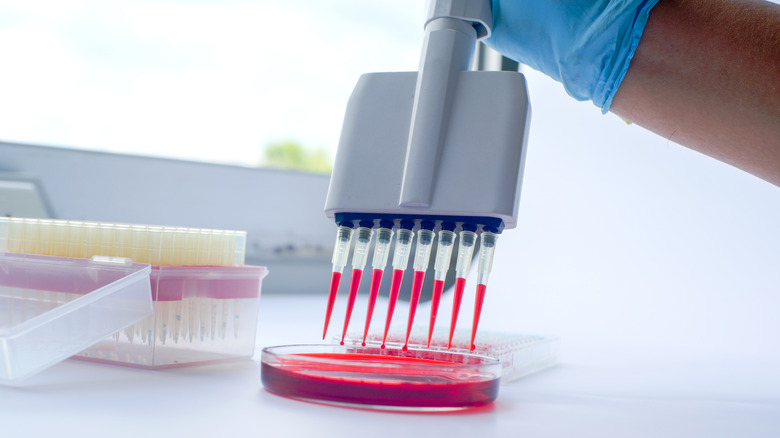What Does It Really Mean When Your Hemoglobin Count Is Low?
If you've ever had a blood test, you've probably come across the hemoglobin count, which is usually abbreviated as Hgb. This is an important laboratory value measuring the hemoglobin level in your blood — but what is hemoglobin, and what does it mean if the value is too low? Hemoglobin is found in the red blood cells but is produced in the bone marrow (via Healthline). This protein is particularly important for transporting oxygen from your lungs to every single cell in the body and also gives blood its characteristic red color, per Healthline.
According to Johns Hopkins Medicine, iron is required to form hemoglobin. About 70% of the body's iron is found in the red blood cells, per UCSF Health. This is why the hemoglobin value is closely linked to the iron value during a blood test. In addition, hemoglobin transports the carbon dioxide produced during various metabolic processes to the lungs, from where it's exhaled, per Johns Hopkins Medicine.
What is a low hemoglobin count and what does it mean?
Low hemoglobin is less than 11.6 grams of hemoglobin per deciliter (dL) in women and less than 13.2 grams per deciliter for men (via Mayo Clinic). These numbers vary amongst medical practices and also take individual factors into account, such as age and gender, per Healthline.
For some practices, a low hemoglobin count just slightly below normal might go unnoticed. A slightly reduced Hgb value doesn't always indicate disease — it can also be considered "normal" for some people (via MedicineNet). For example, women are more likely to have low hemoglobin levels when they're menstruating or pregnant, per the Mayo Clinic. However, a low hemoglobin count — which can be more serious and cause symptoms — may indicate anemia, per the Mayo Clinic. If anemia is suspected, your doctor might check other parameters of the red blood cells, in addition to the hemoglobin value.
What to do if your hemoglobin level is too low?
There are various causes of low hemoglobin. Some include a lack of iron, folate, or vitamin B-12 in your diet (via Healthline). Other causes include sickle cell anemia, internal bleeding, chronic kidney disease, and severe blood loss, per Healthline. It would be best if you clarified the cause with your doctor, who'll try to find the reason for the low Hgb values and treat your specific needs. If the Hgb value is caused by iron deficiency, your doctor might advise changing your diet. Iron-rich foods include meat, such as beef and pork, and leafy green vegetables like broccoli, per Johns Hopkins Medicine.
Iron supplementation might also help increase the Hgb value and can be taken over a few months to promote blood formation, per Johns Hopkins Medicine. In certain cases, iron may also be administered through a vein (via Healthline). This occurs, for example, when oral preparations aren't tolerated or if you can't absorb the vitamin via the gastrointestinal tract. How long it takes for the Hgb value to rise again varies from person to person. Your doctor may monitor the Hgb levels over time.



